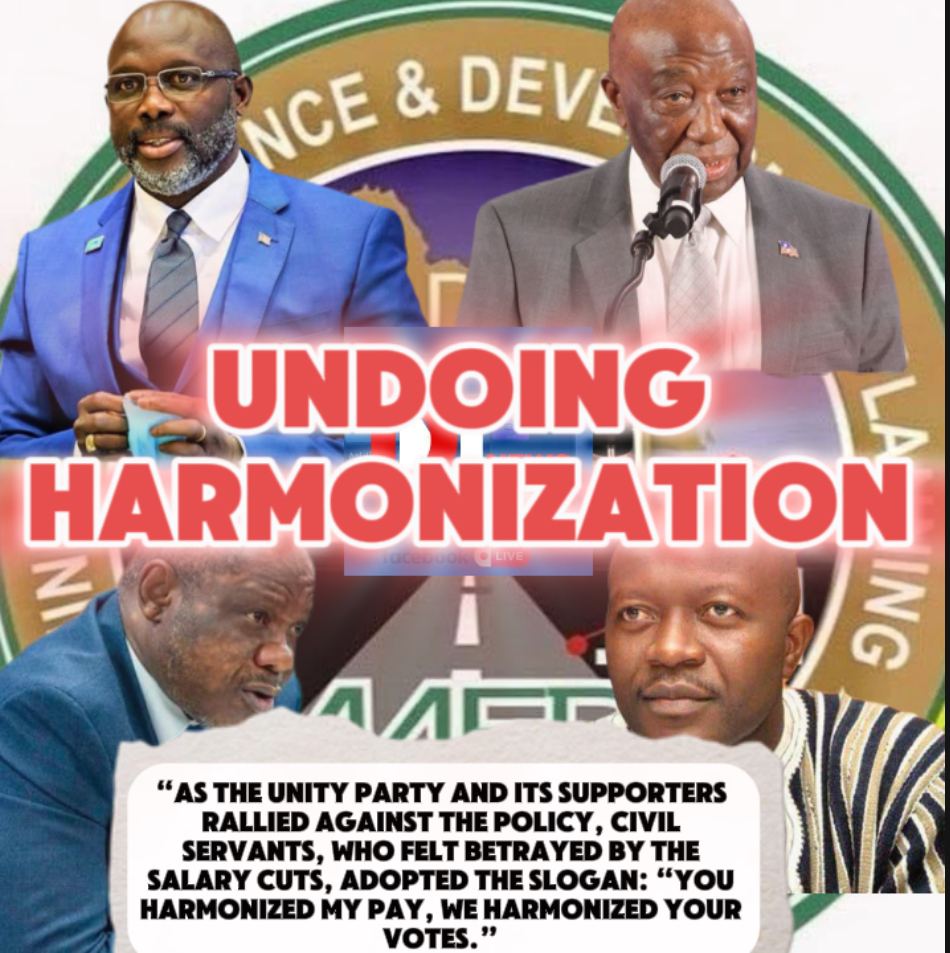When former Finance Minister Samuel D. Tweah introduced the controversial salary harmonization policy, he claimed it was an IMF-backed decision aimed at reducing Liberia’s unsustainable wage bill.
However, for thousands of civil servants and government employees, this policy marked the beginning of a painful era of financial insecurity and economic strain.
The cuts hit the already struggling population hard, worsening the livelihoods of public workers and further deepening the frustrations of many ordinary Liberians.
Political analysts and critics at the time warned of the dangers posed by this policy. For them, it represented more than just a financial adjustment—it was seen as a deliberate attempt to accommodate more ruling party loyalists, particularly CDCians, into government positions without proper scrutiny.
The opposition, including members of the then-ruling Unity Party, vehemently opposed the harmonization policy, describing it as unjust and damaging. They argued that it was designed to benefit a select few at the top while further impoverishing civil servants at the bottom.
Harmonization soon became a potent campaign issue. As the Unity Party and its supporters rallied against the policy, civil servants, who felt betrayed by the salary cuts, adopted the slogan: “You Harmonized My Pay, We Harmonized Your Votes.” This sentiment proved prophetic, as many of those affected voted against the Weah administration, contributing to the President’s eventual electoral defeat.
Now, the Unity Party under President Joseph Boakai is in power, and the people are watching closely to see if the new administration will stay true to its campaign promises. Central to those promises was the reversal of the salary harmonization policy.
However, during a recent radio interview on ELBC, Finance Minister Augustine Ngafuan sidestepped questions regarding whether the government plans to undo the controversial harmonization policy.
Instead, he hinted at the administration’s intention to incrementally increase the disposable incomes of civil servants, stating that more details would be provided in the upcoming FY25 budget.
Incremental increases, while potentially helpful in the short term, do not constitute a reversal of policy. The reality is that undoing the damage of harmonization requires bold and definitive action.
To put this into perspective, when U.S. President Joe Biden took office, one of his first actions was to sign a series of executive orders to reverse key policies of the Trump administration. This was done within hours of taking office and demonstrated the kind of decisive leadership needed to correct the course of a nation.
Similarly, if the Boakai administration genuinely believes that the harmonization policy was harmful, then it must take clear and immediate steps to reverse it.
The truth is, undoing the harmonization policy is not a matter of tweaking salaries here and there. It requires a legislative approach. Since the policy was originally endorsed by the Legislature, the Boakai government must make its case before that body to repeal the policy and restore civil servants to their previous pay levels.
Anything short of this would be seen as a betrayal of the people’s trust and expectations. The civil servants who endured years of financial hardship due to harmonization are now looking to this government for relief.
The time for political maneuvering and ambiguous answers is over. The Boakai administration owes it to the people of Liberia to follow through on its promises.
If harmonization was indeed a dangerous financial policy, as the Unity Party claimed, then it is the government’s responsibility to take concrete steps to undo it. The people who voted for change did so with the hope that their voices would be heard, their grievances addressed, and their livelihoods restored

